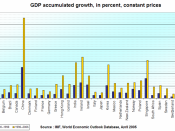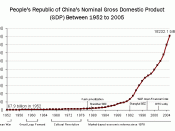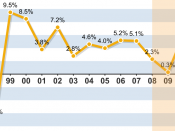China's state economic planning trade with the world continues to set overall goals for economic activity and to pursue industrial policies built upon domestic content requirements, subsidies, and other trade restrictions barred by the World Trade Organization. These policy tools allow Beijing not only to control demand for imports, but to exercise enormous control over all economic activity in China. Last year, China was the recipient of more foreign investment than any other country except the United States. This torrent of investment is one of the principal factors driving China's economic growth, but foreign investment in China has strings attached. Complete figures are not available because the relevant policies are executed through private contracts with foreign investors, but anecdotal reports indicate that virtually all Western firms investing in China are forced to agree to certain investment performance requirements. These measures typically demand that most or all production be exported from China and that production technology be transferred to China.
TABLE OF CONTENTContentsABSTRACT2CHAPTER I4Context of the problem4Statement of the problem8Research question9Significance of the study9Research methodology10Organization of the study10CHAPTER II12A critical Analysis of Trade imbalance between China and the United States12The strategic equation13Democracy in Trade imbalance17Economic relations22Summary25REFERENCES27CHAPTER IContext of the problemTrade deficits occurring in the context of normal trade relationships are not necessarily a sign of trade problems. After all, many factors-- including exchange rates and relative economic growth rates--contribute to a country's trade balance. Thus, it is entirely possible for a highly protectionist country to run a trade deficit or for an open economy to run a trade surplus. Some economists argue that trade deficits among open economies are of little importance; even former U.S. president Ronald Reagan once proclaimed that trade deficits were a sign of strength.
Of course, the existence of a bilateral trade imbalance with any particular country...


